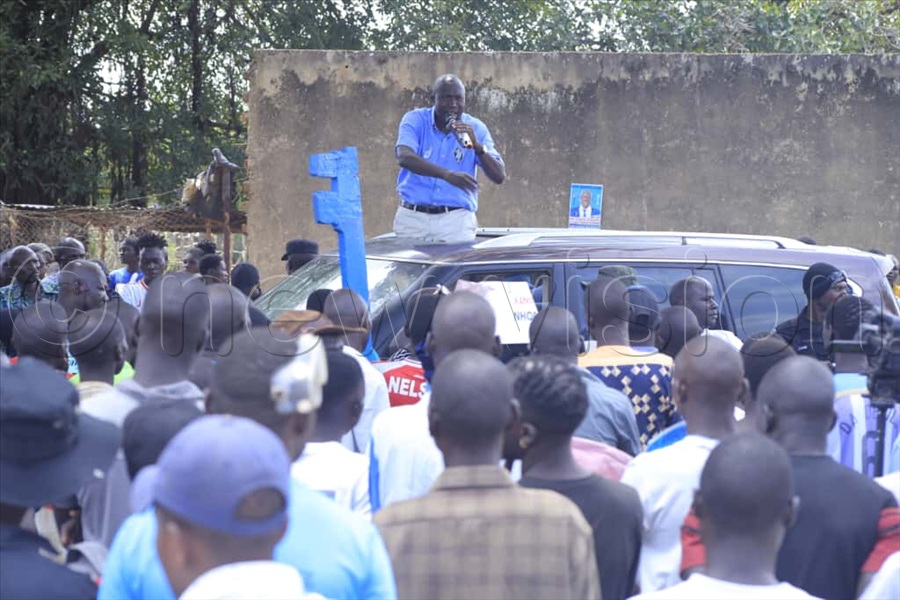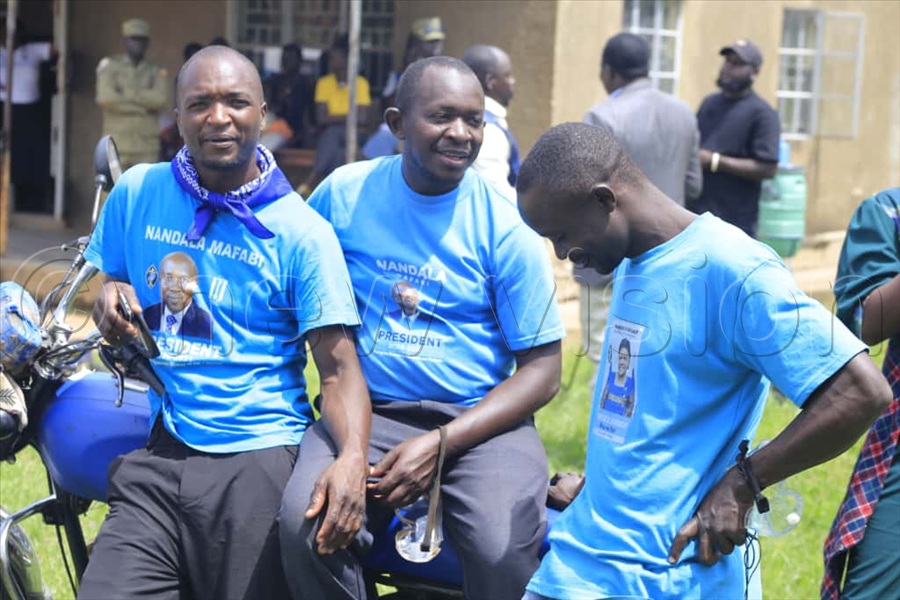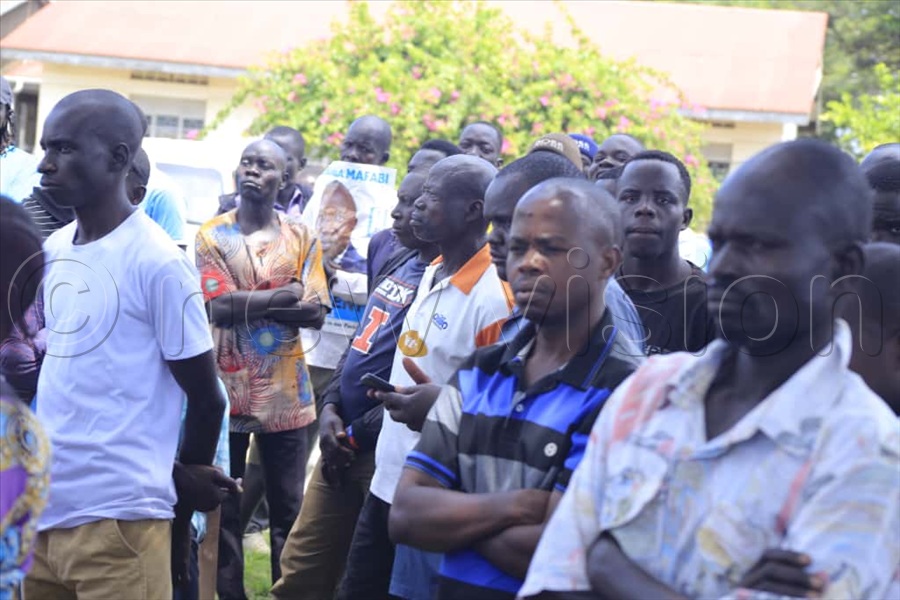Nandala rallies West Nile on mindset change, poverty eradication
For many communities, quality education remains out of reach. Mambo Onzi told the New Vision that many children fail to progress to secondary level because of school fees and the absence of government schools to support them.
Nandala pledged to revive the agricultural sector, restore cooperative unions and rebuild farmer financing structures. (Credit: Alfred Ochwo)
WEST NILE - With just 60 days left before Ugandans choose the country’s next leader on January 15 next year, residents of Arua and Maracha have expressed deep frustration over persistent challenges in education, health, infrastructure and agriculture.
These concerns dominated discussions on Friday (November 14) as Forum for Democratic Change presidential candidate James Nathan Nandala Mafabi campaigned in the sub-region during his fifth consecutive day in West Nile.
For many communities, quality education remains out of reach. Mambo Onzi told the New Vision that many children fail to progress to secondary level because of school fees and the absence of government schools to support them.
“We have one government secondary school serving three subcounties, and that’s Otravu SS. The whole district has only six secondary schools, with more than 50 primary schools. Even in the hospitals, they keep telling us drugs are finished, whether it is the beginning or the end of the month. We want a president who will solve these issues for us,” said Mambo Onzi, a resident of Ovujo town council in Maracha district.
Mafabi promised that, if elected, he would prioritise poverty eradication, equitable resource allocation and meaningful community-based development. He added that his campaign model focuses on meeting people at the grassroots rather than holding rallies only in major towns. (All Photos by Alfred Ochwo)
Maracha County MP Denis Lee Oguzu, who accompanied Mafabi, said the region has long struggled with inadequate public services and neglect from the central government.
He noted that despite paying taxes, residents see little return through development.
“Arua and Maracha want a president who can bring electricity to all communities, not only selected places. People here want to see value for their tax money. We have areas with no health centres at all. We have raised these issues repeatedly in Parliament, but the current government does not listen.” Oguzu said.
While addressing rallies in both Arua and Maracha, Mafabi criticised the poor road network, saying dilapidated and dusty roads have crippled trade, delayed transport and limited access to health care, especially for rural families. He said West Nile, once a thriving hub for tobacco and cotton, has seen its agricultural strength decline due to weak policies and reduced farmer support.
He pledged to revive the agricultural sector, restore cooperative unions and rebuild farmer financing structures.

“You were known for tobacco, for cotton. Now you have nothing. We want to restore West Nile Cooperative Union, Cooperative Bank, Agriculture Bank, and bring back cotton, cassava, sorghum and tobacco. These crops can earn you real money. We shall bring your banks back, Cooperative Bank and Agriculture Bank, where you’ll get money at no interest because the banks belong to you.” Mafabi said.
Mafabi also questioned why some senior government officials continue to invest in traditional cash crops if they claim such commodities no longer benefit ordinary farmers.
He argued that West Nile’s agricultural collapse is rooted in mismanagement and the weakening of farmer institutions.
Beyond agriculture, Mafabi issued a strong call for mindset change, saying West Nile remains poor partly because citizens have stayed silent while service delivery deteriorates.
“We want you to make a change so that your taxes work for you. Mothers and fathers, you are suffering because you have kept quiet. A government does not do you a favour. You elect it and give it resources to work for you, it is entitled to deliver your rights.”

Despite years of government development programmes, West Nile remains one of Uganda’s poorest sub-regions. Many families struggle with basic needs, and youth unemployment remains high.
Mafabi promised that, if elected, he would prioritise poverty eradication, equitable resource allocation and meaningful community-based development. He added that his campaign model focuses on meeting people at the grassroots rather than holding rallies only in major towns.
“We are not going to be in towns like our brothers in NUP or NRM,” he said. “We come to the villages because we want you to understand us, and we also want to understand the life you live.” He highlighted.
Mafabi continues his campaign on Saturday (November 15) in Arua city, marking his 82nd district visited in the 48 days since the presidential campaign trail began.
Under the NRM government, several programmes have been implemented, with many Arua residents benefiting from the Parish Development Model and earlier schemes such as Emyooga and Operation Wealth Creation.
The government also elevated Arua municipality to city status, which has brought additional financial support and economic opportunities. The area is currently benefiting from ongoing construction and rehabilitation works on the Arua to Kampala highway, which authorities say reflect government progress in the district.